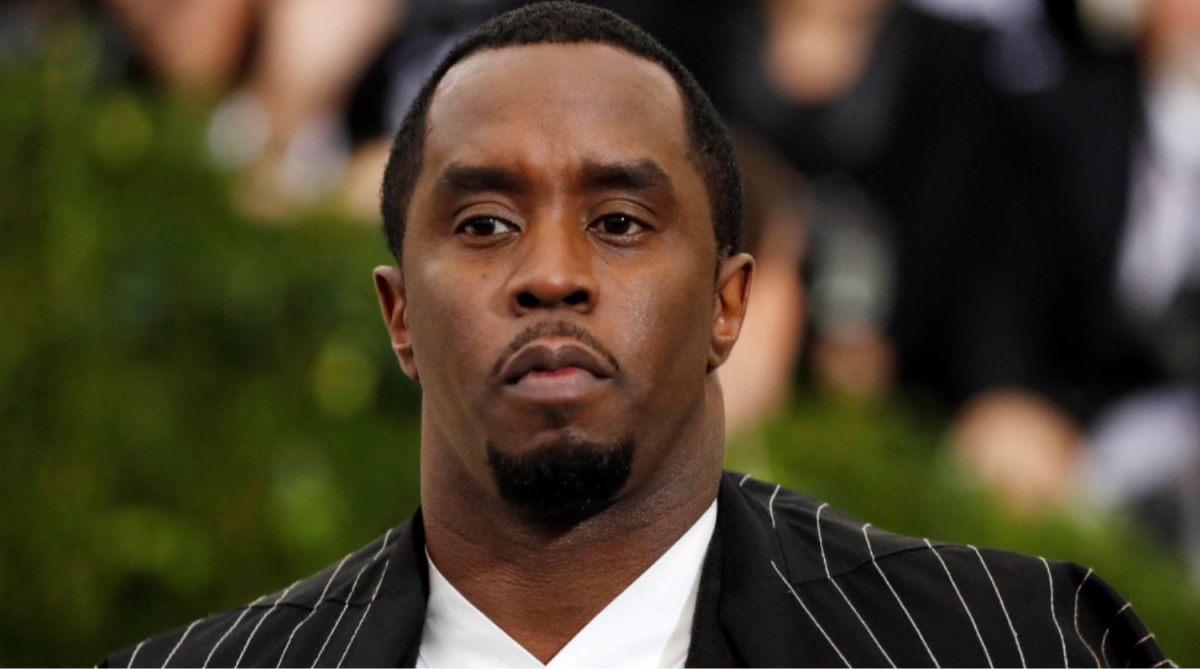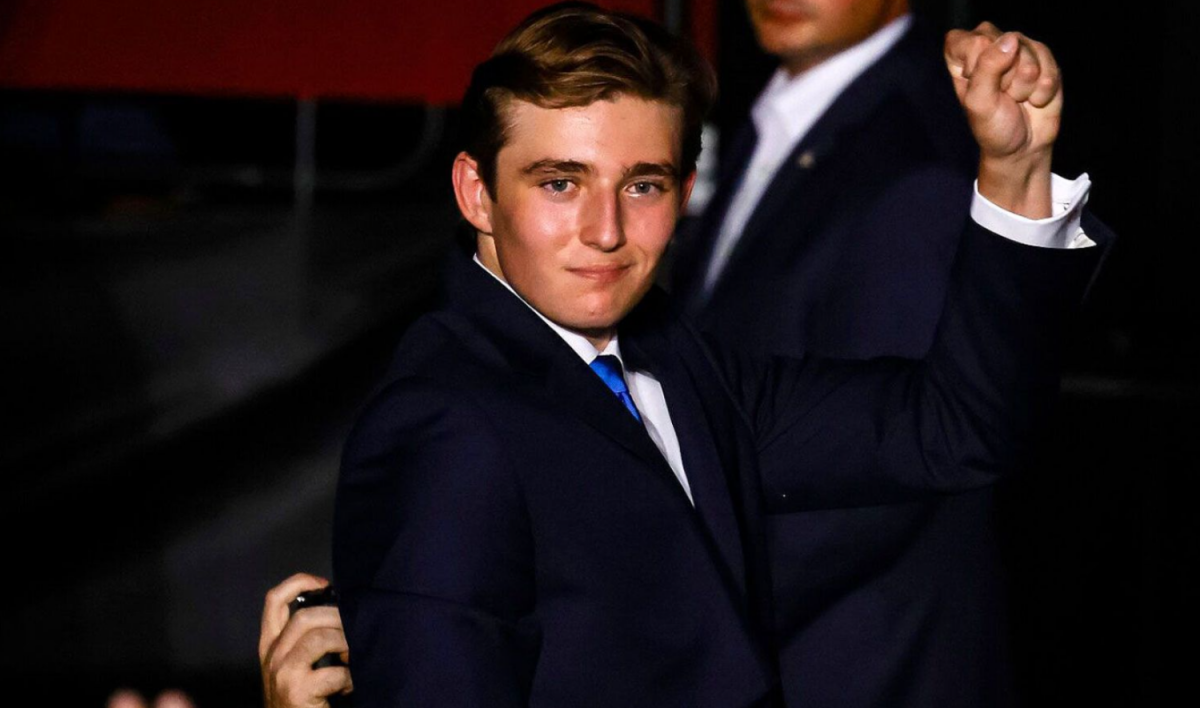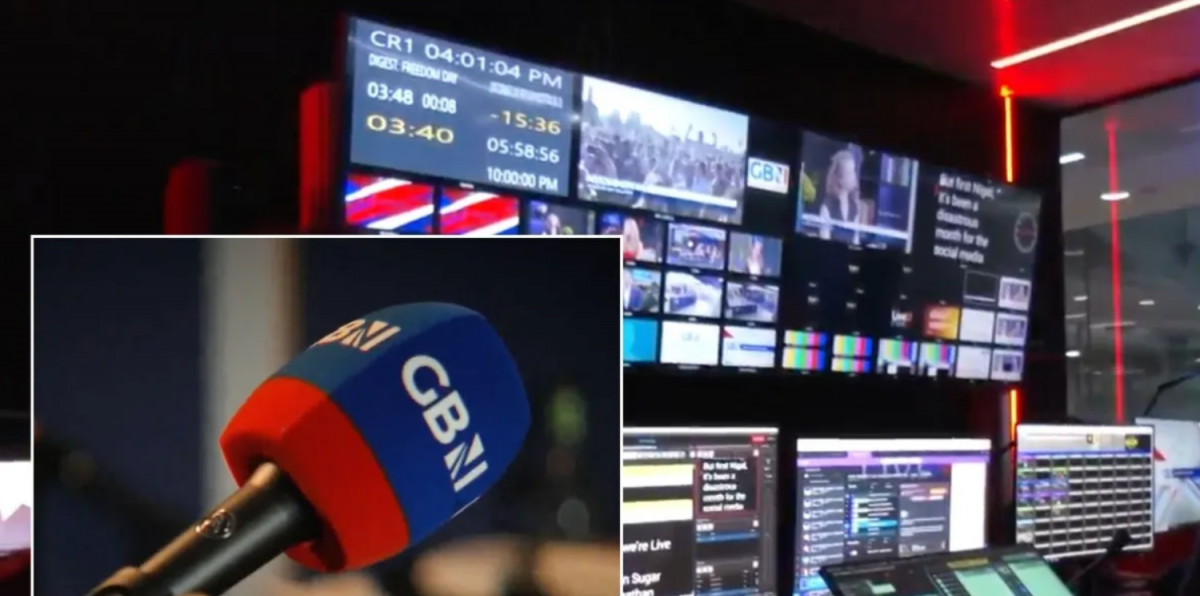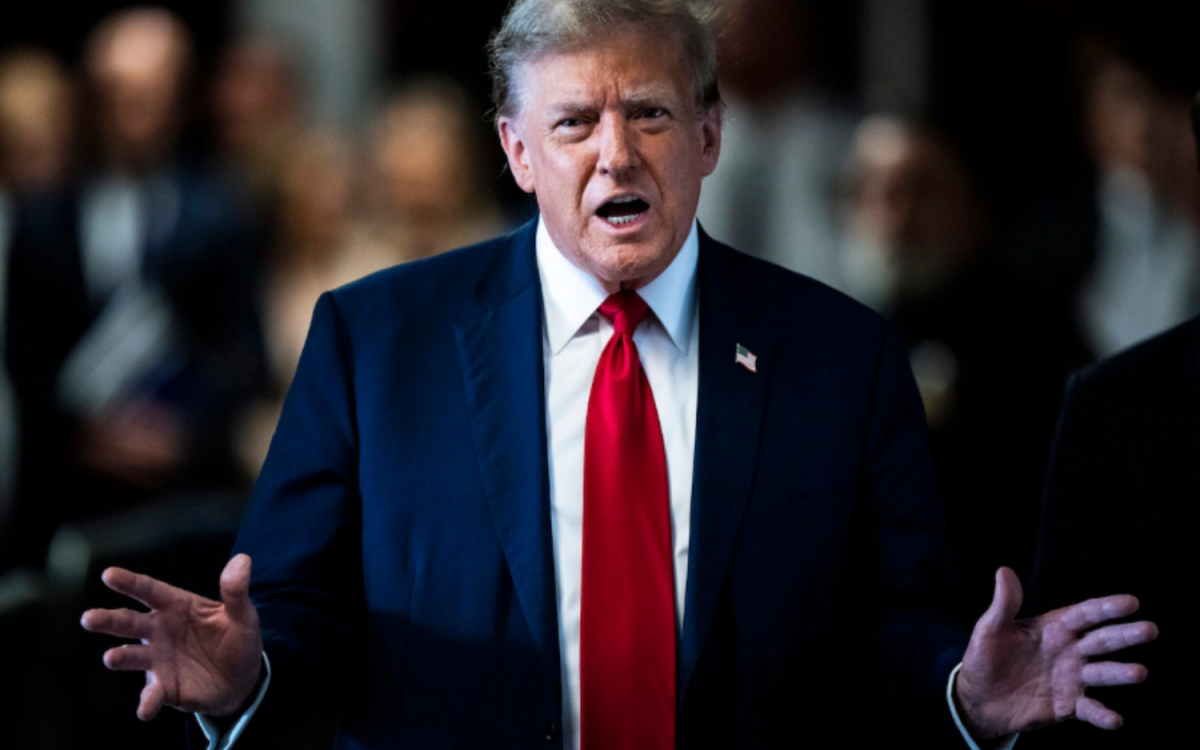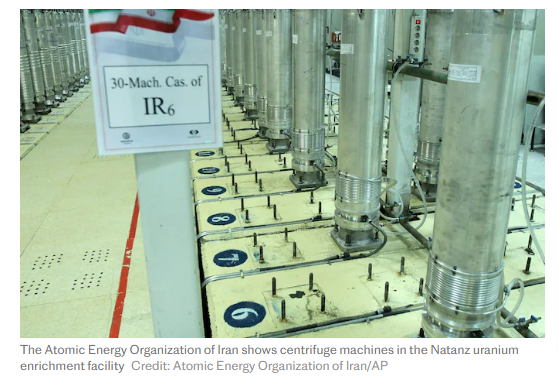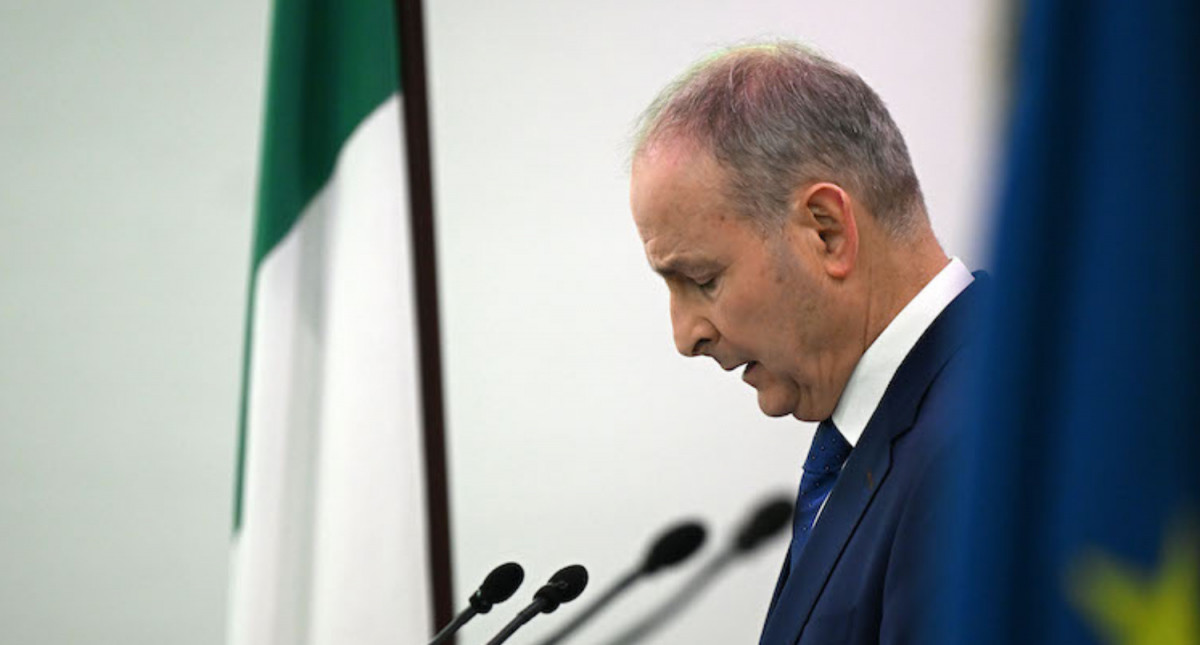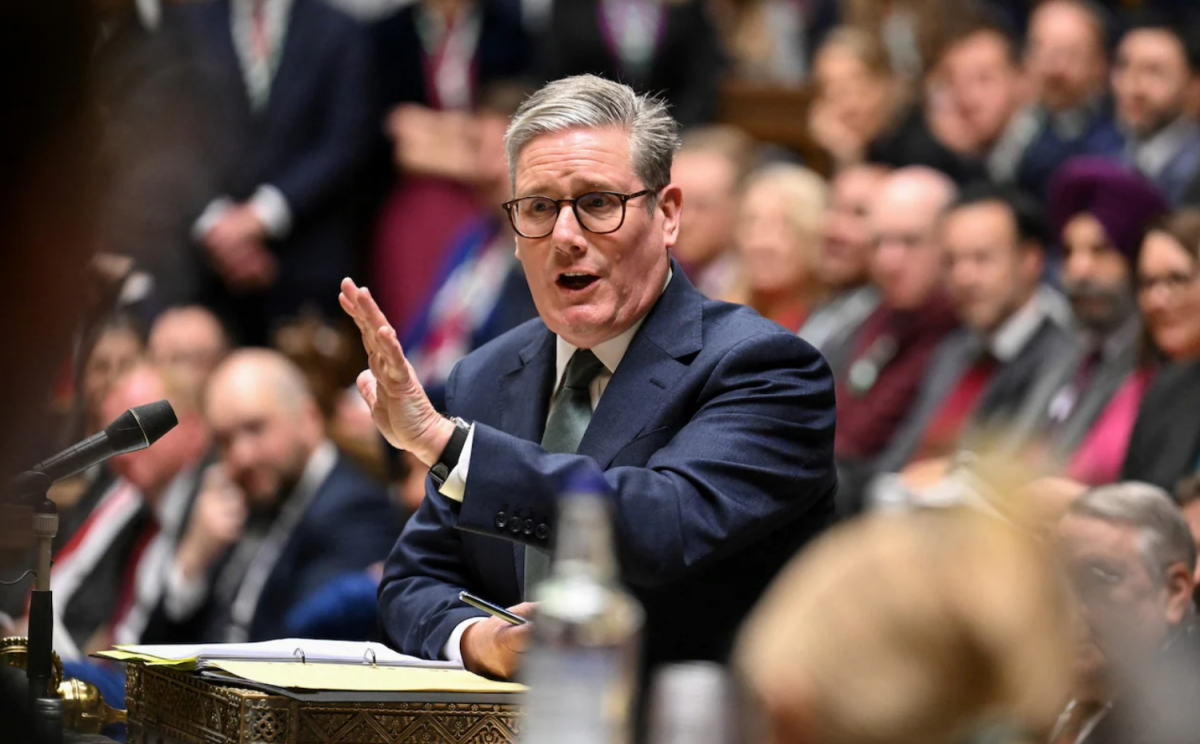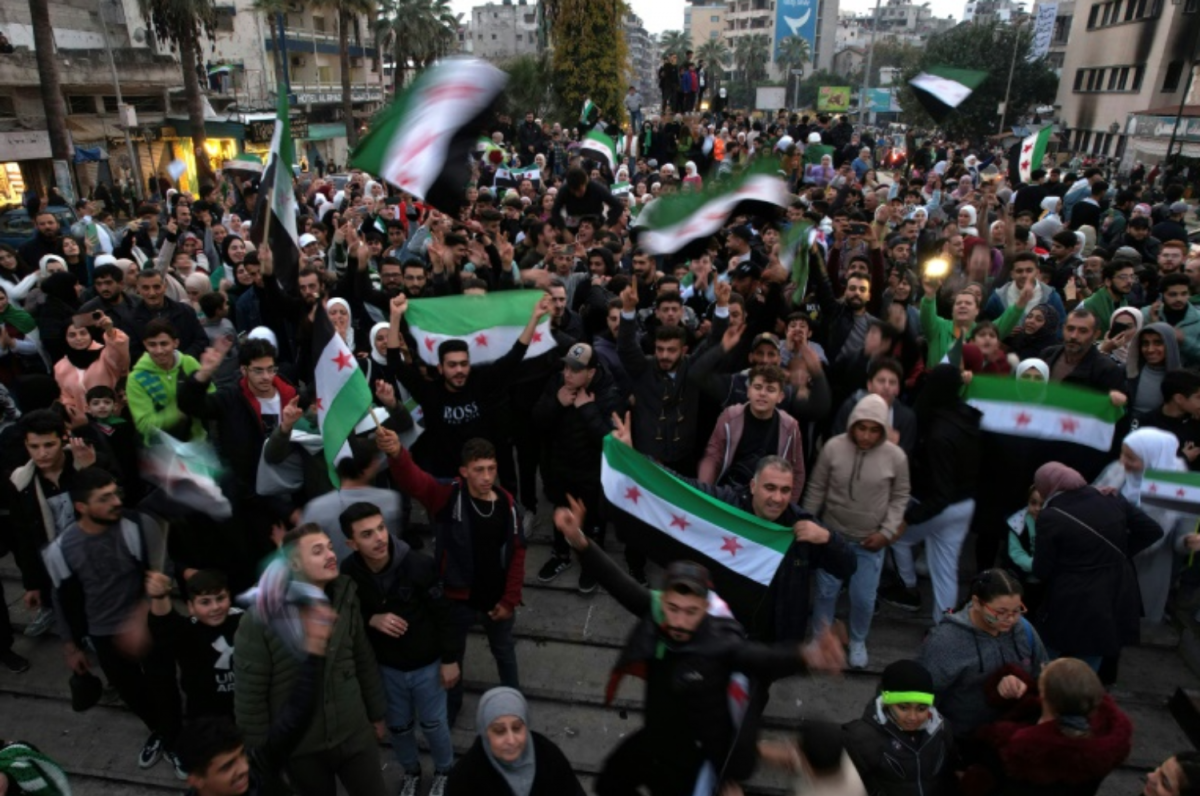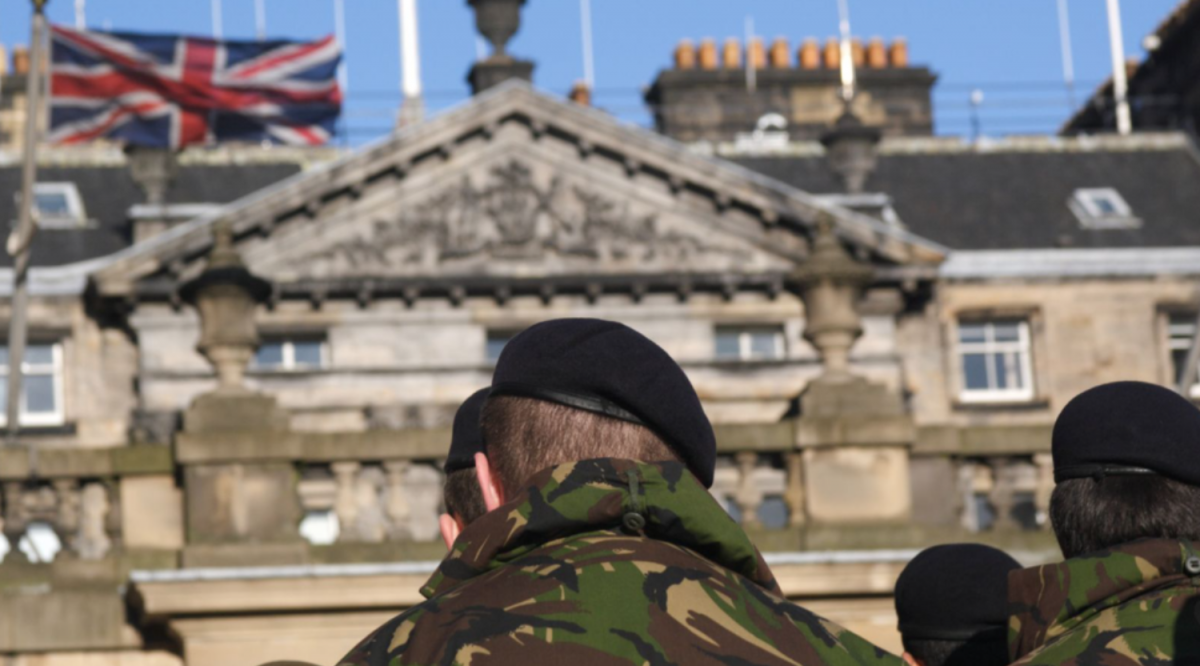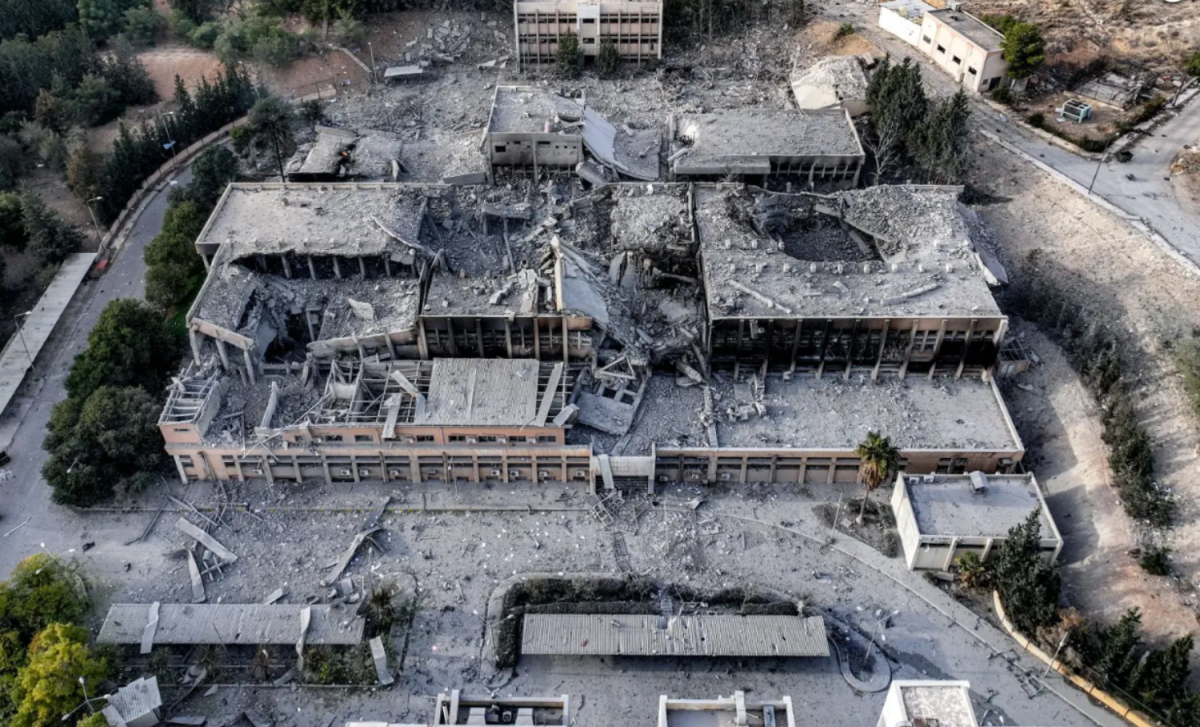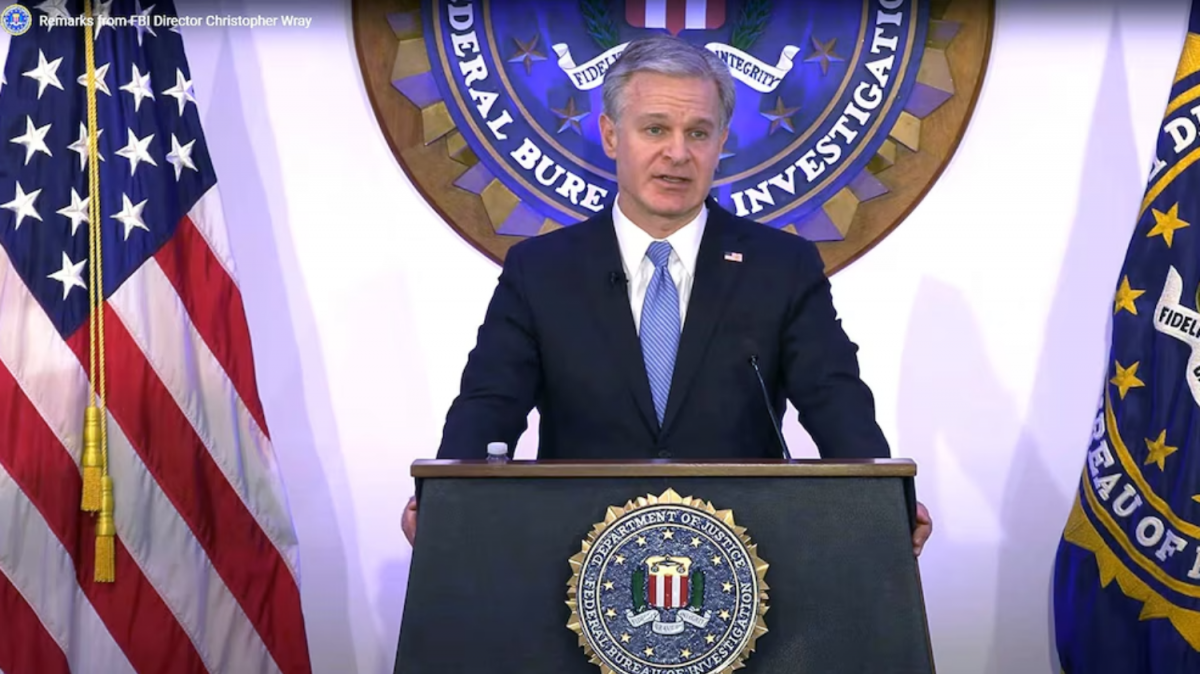-
Posts
10,758 -
Joined
-
Last visited
Content Type
Events
Forums
Downloads
Quizzes
Gallery
Blogs
Everything posted by Social Media
-
Meta, the tech giant behind Facebook, Instagram, and WhatsApp, announced a $1 million donation to President-elect Donald Trump’s inaugural fund, marking the latest twist in a tumultuous relationship between the company and the former president. A Meta spokesperson confirmed the donation following a report by The Wall Street Journal. This gesture comes after a series of tense exchanges between Trump and Meta CEO Mark Zuckerberg. During the campaign, Trump threatened Zuckerberg with “life in prison” if he engaged in actions Trump deemed illegal during the election. Despite this, the two shared a dinner last month at Trump’s Mar-a-Lago resort in Florida, a meeting that highlighted the complex dynamics between the pair. Zuckerberg refrained from endorsing any candidate during the campaign, including Trump or Vice President Kamala Harris. However, he did openly praise Trump’s defiance after a July assassination attempt, calling the former president’s raised fist following the incident “one of the most badass things I’ve ever seen in my life.” Meta’s relationship with Trump has long been fraught, reflecting broader challenges the company faces in navigating politics. Trump’s 2016 campaign heavily credited Facebook with enabling effective voter outreach through digital advertising. However, the company took a starkly different stance in 2021, suspending Trump’s Facebook and Instagram accounts following the January 6 attack on the U.S. Capitol. Although those accounts have since been reinstated, Meta has emphasized efforts to reduce the prominence of political content in its users’ feeds. Looking ahead, Meta and other tech firms are keenly aware of the Trump administration’s potential influence on federal policy over the next four years. Issues such as artificial intelligence regulation and antitrust enforcement remain critical for the industry. During Trump’s first term, the Federal Trade Commission, led by a mix of Trump and Democratic appointees, initiated a lawsuit seeking to break up Meta, then operating as Facebook. That case, filed in December 2020, remains unresolved. The company’s connections to Trump extend beyond Zuckerberg. Meta board member Marc Andreessen revealed that he has devoted significant time since the election assisting with Trump’s transition efforts at Mar-a-Lago. Peter Thiel, a former Meta board member and longtime Trump adviser, also continues to be a significant presence in Trump’s orbit. Meta’s donation underscores the intricate balancing act it faces in maintaining relationships with political leaders while managing its vast influence over public discourse. The company’s role in shaping how billions of users access news and information remains a focal point of its ongoing engagement with governments worldwide. Based on a report by NBC News 2024-12-12
-
Sinmyah Ceasar, a 29-year-old former New Yorker turned ISIS recruiter, faces a potential 70-year prison sentence after an appeals court deemed her original four-year punishment “shockingly low.” Ceasar, who became infamous under the nickname “Umm Nuteella,” initially received a lenient sentence in 2019 despite pleading guilty to charges of providing material support to ISIS and obstructing justice. Her original sentencing judge, the late Jack Weinstein, argued that Ceasar needed education and mental health support rather than a lengthy prison term, believing this approach could "save her as a human being." However, her subsequent behavior proved troubling. Released from prison in July 2020 to serve an eight-year supervised release, Ceasar quickly resumed ties with terror affiliates and violated court orders. Federal prosecutors detailed her consistent defiance, noting that she contacted a known Taliban supporter, solicited money for an ISIS affiliate, and lied about her social media use. In one instance, she even liked a post by a user whose profile prominently displayed the ISIS flag. She also attempted to flee after removing her ankle monitor, heading for Russia before being apprehended at a New Mexico auto body shop in 2021. Ceasar's troubling activities began long before her initial sentencing. Prosecutors allege she intended to marry Fareed Mumuni, an ISIS supporter serving a 25-year sentence for planning an attack on an FBI agent. Though the union never materialized, her ongoing support for extremist ideologies left little doubt about her intentions. Prosecutors are now pushing for a sentence of 30 to 70 years, citing her repeated violations of supervised release and refusal to adhere to court orders. “There is simply no other terrorism defendant who compares to the defendant’s history of recidivism,” prosecutors stated in a memorandum, emphasizing the persistent threat Ceasar poses. The origin of her nickname, “Umm Nuteella,” remains unclear, adding an odd note to a case marked by serious allegations and national security concerns. Meanwhile, Ceasar’s defense team continues to argue that her actions stem from trauma, pointing to her history of childhood abuse and PTSD. While her re-sentencing was initially scheduled for Thursday, Brooklyn Federal Court Judge Kiyo A. Matsumoto postponed the hearing to February, allowing time for additional legal filings. Whether Ceasar receives the lengthy sentence prosecutors seek remains to be seen, but the appeals court decision has placed her future under intensified judicial scrutiny. Based on a report by NYP 2024-12-14
-
A transgender varsity fencer, Redmond Sullivan, has ignited debate after transitioning to her college's women's team and securing gold at the Connecticut Division Junior Olympic Qualifiers. The competition, held last weekend, serves as a key pathway for American athletes under 20 to vie for national titles in fencing. Sullivan, who previously competed in the men’s division, was transferred to Wagner College’s women’s team earlier this year. Her victory in the Junior Women’s Foil event in Newtown, Connecticut, marked a significant milestone, earning her an E24 ranking according to Fencing Tracker. This win, however, has drawn sharp criticism from high-profile figures and organizations advocating for fairness in women’s sports. Tennis legend Martina Navratilova, a vocal opponent of allowing transgender women to compete in female categories, expressed her disapproval, referencing a Reduxx report about Sullivan on X, formerly known as Twitter. Similarly, Marshi Smith, co-founder of the Independent Council on Women’s Sports (ICONS), criticized the NCAA and Wagner College for their decision to allow Sullivan’s participation. Smith remarked, "The NCAA is repeatedly rewarding the replacement of women in order to champion men in women's sports. This ongoing pattern of discrimination is why we are supporting a female athlete's lawsuit against the organization. Legal action is necessary to hold the National AA accountable for its repeated failures to uphold fairness and equality in women's sports, with fencing being a particularly troubling example." Sullivan's athletic journey includes competing in track and field events for the girls' team at Daniel Hand High School in Madison, Connecticut, prior to joining Wagner College. Despite her recent success, Sullivan’s prior performances ranked her 48th out of 50 in a Division I women’s foil event and 31st out of 36 in a Division II event. Before transitioning to the women’s team, she was ranked 29th in a men’s foil event last year. The controversy surrounding Sullivan’s inclusion in the women’s division highlights a broader debate about transgender participation in sports. Critics argue that transitioning athletes may retain advantages gained during male puberty, posing challenges to fairness in female competition. In response, many sporting organizations require transgender women to meet specific criteria, such as undergoing hormone treatment and achieving lowered testosterone levels, before being eligible to compete. Supporters of transgender athletes, however, emphasize that the transgender community is a small and vulnerable population and that the number of trans athletes remains minimal. The discussion gained momentum after President Joe Biden extended Title IX protections to transgender individuals in 2021, a move that prohibits sex-based discrimination in federally funded educational programs. Wagner College has publicly affirmed its commitment to inclusivity, stating on its website that it “strives to create inclusive and supportive environments for LGBTQIA+ students.” However, when approached for comment, head fencing coach David Sierra deferred to the university’s media team, which did not respond to multiple inquiries. The ongoing debate underscores the complex intersection of inclusivity, fairness, and competition in sports, with Sullivan’s victory serving as the latest flashpoint in this contentious issue. Based on a report by Daily Mail 2024-12-14
-
Three men have filed lawsuits accusing Sean "Diddy" Combs of drugging them and raping them while they were unconscious. The separate legal actions, which span from 2019 to 2022, detail similar incidents involving the American rapper, once known as Puff Daddy. According to the men, the assaults took place in hotel rooms or Combs’s private residence after they were allegedly given drinks laced with drugs. Lawyer Thomas Giuffra, representing the three men, emphasized the consistency in the allegations, describing Combs’s actions as "very consistent" across all three cases. He explained that the pattern involved Combs allegedly serving the victims drinks that caused them to lose consciousness, after which they woke up to find themselves being sexually assaulted. In one of the lawsuits, a long-time employee of Combs, who worked for the mogul from 2006 to 2018, recounted an alleged incident in a hotel room in early 2020. The man had reportedly gone to the hotel to discuss money he claimed he was owed. Upon entering the room, Combs allegedly served him a drink, after which the man quickly began feeling "very tired, very sleepy." He later woke up to find Combs sexually assaulting him and attempted to stop him, the man said. A second lawsuit involves a man who claims he met Combs at a nightclub in Manhattan in 2019. He was invited to an exclusive afterparty at the Park Hyatt hotel, where Combs allegedly offered him a cocktail that he had personally prepared. After drinking it, the man lost consciousness, and when he woke up, he was reportedly being raped by Combs. Court documents suggest the incident was filmed, and the man was allegedly paid $2,500 by the person who filmed the assault, who claimed it was money from Combs. The third lawsuit focuses on a man who alleges that he was sexually assaulted multiple times between 2020 and 2022, including during a party at Combs’s mansion in East Hampton, New York. According to the complaint, the man began feeling ill during the event, faded in and out of consciousness, and was then sexually assaulted and raped. Combs’s legal team has strongly denied the allegations, dismissing them as “full of lies.” They stated, “We will prove them false and seek sanctions against every unethical lawyer who filed fictional claims against him.” These new lawsuits add to a growing number of legal actions against Combs, who has faced accusations of assault and rape dating back to the 1990s. The ongoing cases have brought renewed attention to the issue of sexual misconduct in the entertainment industry, with many questioning the power dynamics at play and the legal recourse available to victims. The lawsuits against Combs are still unfolding, and as of now, the rapper has not made any public statements regarding the specific allegations. Based on a report by Sky News 2024-12-14
-
Barron Trump, the youngest son of Donald and Melania Trump, is reportedly thriving in his new chapter of life at New York University’s Stern School of Business. According to insiders, the 18-year-old has been making waves not just academically but socially as well. "He’s really popular with the ladies," a source told PEOPLE, highlighting his charm and appeal among his peers. Melania Trump, speaking to Fox News, opened up about her son’s decision and how it reflects the independence she instilled in him. "I could not say I’m an empty nester. I don’t feel that way," she remarked. She emphasized that Barron has always been raised as his "own person" and that she respected his decision to study and live in New York. "It was his decision to come here," she noted, underscoring her support for his choices. Barron’s presence at NYU hasn’t gone unnoticed. On his first day, he was spotted near the campus library, flanked by Secret Service agents, a reminder of his unique position as a public figure navigating college life. Despite his academic commitments, Barron has made selective appearances during his father’s 2024 presidential campaign. Notably, he declined an invitation to serve as an at-large delegate for Florida at the Republican National Convention, citing "prior commitments," as announced in a statement by Melania Trump. "While Barron is honored to have been chosen as a delegate by the Florida Republican Party, he regretfully declines to participate due to prior commitments," she wrote. Although Barron was the only one of Donald Trump’s five children absent from the convention in Milwaukee, he did make his first public appearance at a campaign rally shortly before the event, signaling his quiet but notable support for his father’s ambitions. From his choice to attend Stern to his reserved yet impactful presence in public life, Barron Trump seems to be carving a unique path for himself. Balancing the pressures of being a Trump with the demands of college life, he’s proving to be a young man who commands attention in his own right. Based on a report by People 2024-12-14
-
The UK economy faced an unexpected setback in October, contracting by 0.1 percent, according to figures released by the Office for National Statistics (ONS). This downturn marked the second consecutive month of economic decline, raising concerns about the nation's financial trajectory as Labour prepared to deliver its first budget in over a decade. Chancellor Rachel Reeves responded to the discouraging data by reaffirming Labour’s commitment to long-term economic growth. “We are determined to deliver economic growth as higher growth means increased living standards for everyone, everywhere. This is what our Plan for Change is all about," she stated. Acknowledging the disappointing figures, Reeves emphasized measures the government has introduced to stabilize finances and foster development, including capping corporation tax at the lowest rate in the G7, establishing a £70 billion National Wealth Fund, and launching a 10-year infrastructure strategy. She added that these initiatives are designed to drive investment in British businesses, infrastructure, and clean energy. However, the economic contraction has fueled speculation about an impending recession, with analysts pointing to a 0.1 percent decline in GDP for both September and October. Lindsay James, an investment strategist at Quilter Investors, described the October figures as "not all that pretty," providing a sobering perspective on the UK's financial health. "The UK economy had been building relatively good momentum in the earlier part of this year, but concerns around the messaging in the lead up to the budget saw consumers hit pause on spending while they awaited more details on the government’s plans," she noted. Despite these challenges, there were some areas of modest growth. Over a three-month period, the economy managed a slight 0.1 percent gain, buoyed by 0.4 percent growth in the construction sector and a 0.1 percent increase in the service economy. However, production saw a decline of 0.3 percent during the same period. James expressed cautious optimism for potential improvements in the coming months, attributing it to a less severe budget than initially feared. Yet, she warned of risks such as the impact of increased national insurance contributions, which could dampen wage growth and consumer spending. Adding to the uncertainty, James highlighted external factors like Donald Trump’s recent election win in the United States. While acknowledging the potential for trade disruptions due to Trump's proposed tariffs, she suggested the UK might fare better than its European neighbors given its export focus on services rather than goods. “The UK’s exports to the US are largely in the form of services as opposed to goods, so although the US is its biggest export market, the impact could be less keenly felt,” she said. Alice Haine, a personal finance analyst at Bestinvest by Evelyn Partners, echoed concerns about the economy’s trajectory. She described the unexpected contraction in October as a “stark reflection of the hit to the economy from the uncertainty running up to the Budget.” Haine pointed out that the £40 billion in tax rises announced by the government posed a significant challenge for businesses, which are expected to bear much of the burden. “Some of the most feared changes to personal taxation may not have materialized, but £40 billion in tax rises is a lot for an economy to get to grips with,” she explained. As Labour grapples with the twin challenges of economic contraction and public anxiety, the October GDP figures underscore the delicate balance required to navigate the UK economy through turbulent times. Based on a report by Daily Express 2024-12-14
-
GB News has come under scrutiny following a report by the Centre for Media Monitoring (CfMM) alleging that the channel broadcasts half of all UK stories about Muslims, often portraying them negatively. The findings, described by the report as bordering on an “obsession,” have been strongly denied by the broadcaster, which called the accusations “highly defamatory.” The report, titled *“GB News: A Snapshot of Anti-Muslim Hate”*, analyzed media coverage over a two-year period and concluded that GB News mentioned Islam or Muslims over 17,000 times, surpassing other major broadcasters. This coverage accounted for more than 50 percent of all mentions of Muslims in UK broadcast media, compared to 32 percent for BBC News and 21 percent for Sky News. The CfMM analysis also highlighted that Islamophobia was mentioned 1,180 times by GB News, often with the intent of undermining or discrediting the concept. During this year’s UK riots, GB News featured prominently, accounting for 62 percent of clips shared on the subject. The network’s coverage reportedly focused on portraying Muslims as perpetrators of violence rather than victims, raising concerns about the potential consequences of such narratives. The report warned that the channel's approach “risks inciting violence and discrimination against Muslim communities.” GB News has firmly rejected the report’s conclusions and criticized its methodology. A spokesperson for the channel labeled the findings “highly defamatory,” claiming that the report was part of a deliberate effort to stifle free speech. “This inaccurate and defamatory report is nothing more than a cynical, self-serving attempt to silence free speech,” the spokesperson stated. “It proves exactly why a news organization like GB News needs to exist and why it is succeeding.” A GB News spokesman said: "This inaccurate and defamatory report is nothing more than a cynical, self-serving attempt to silence free speech. "It proves exactly why a news organisation like GB News needs to exist and why it is succeeding. "We are concerned that at no point did this project of the Muslim Council of Britain contact GB News or its presenters to allow them to respond to these highly defamatory allegations." According to its website, the Centre for Media Monitoring was set up by the Muslim Council of Britain in 2019 "to change the narrative surrounding Islam and Muslims" within the UK press and news broadcasters. The UK Government has a longstanding position of not engaging with the Muslim Council of Britain due to previous leaders of the organisation having "taken positions that contradict our fundamental values" as a country. Based on a report by The Independent 2024-12-14
-
Donald Trump, is reportedly deliberating a potential American response to Iran’s advancing nuclear program. A report by the *Wall Street Journal*, suggests that an attack on Iran’s nuclear facilities is under serious consideration, particularly in the aftermath of Bashar al-Assad's fall in Syria, which has weakened the Iranian axis in the region. Trump is said to have expressed concern to Israeli Prime Minister Benjamin Netanyahu about the possibility of an Iranian nuclear breakout occurring during his presidency. According to individuals familiar with their discussions, Trump conveyed his apprehensions while exploring potential strategies to address the escalating situation. Despite these concerns, the president-elect is reportedly reluctant to commit to a large-scale military conflict that would involve deploying U.S. forces on the ground. Instead, Trump is considering alternative approaches. Among these is the idea of bolstering military presence in the Middle East, including deploying additional forces, warplanes, and ships, as well as supplying Israel with advanced bunker-busting bombs. Such weapons are widely regarded as essential for penetrating Iran’s deeply fortified nuclear facilities, which are resistant to conventional airstrikes. Another strategy under review involves leveraging military threats in tandem with heightened U.S. sanctions to pressure Iran into a diplomatic resolution. This echoes the "maximum pressure" campaign Trump employed during his previous presidency, though that initiative failed to produce the desired outcome. As Trump weighs his options, reports indicate that Israel views this as an opportune moment for a decisive strike against Iran’s nuclear capabilities. The Israeli Defense Forces (IDF) have reportedly ramped up their preparations for such an operation. Israeli media suggest that the fall of Assad in Syria has significantly weakened Iran's regional position, while Israeli forces have established air superiority by dismantling Syria’s robust air defense systems. “The Syrian air defense array is one of the strongest in the Middle East, and the blow caused to it is a significant achievement for the air force’s superiority in the region,” the IDF stated. This development has left a clear path for Israeli fighter jets, heightening the potential for a military strike on Iran’s nuclear sites. Prime Minister Netanyahu has long maintained a hardline stance on Iran’s nuclear ambitions, issuing repeated warnings that Israel will not permit Tehran to develop nuclear weapons. In a video address on Thursday, Netanyahu appeared to hint at broader ambitions to undermine Iran's Islamic regime. Speaking directly to the Iranian people, he expressed optimism about a future free from the current regime. “Women, life, freedom, zan, zendegi, azadi. That is the future of Iran. That is the future of peace. And I have no doubt that we will realize that future together a lot sooner than people think,” Netanyahu declared. Based on a report by Daily Telegraph 2024-12-14
-
Deputy Premier Micheál Martin’s recent announcement has placed Ireland at the center of a growing international controversy. Martin revealed that Ireland would file an intervention with the International Court of Justice (ICJ) in the ongoing case concerning Israel’s military actions in Gaza. Member states are permitted to contribute statements during ICJ proceedings, but the purpose of Ireland’s intervention has sparked heated debate. According to Martin, the filing aims to “broaden [the ICJ’s] interpretation of what constitutes the commission of genocide by a State.” This statement, bold in its implications, has drawn criticism for suggesting a reinterpretation of international law mid-trial to potentially achieve a predetermined outcome. Critics argue that this undermines the very essence of due process. Observers have compared Martin’s stance to notorious historical abuses of legal systems, accusing him of prioritizing political outcomes over legal integrity. Martin’s position, however, does not emerge in isolation. It draws inspiration from a recent Amnesty International report on the conflict. The report controversially claimed that Israel was not guilty of genocide under traditional international law but proposed redefining the term to fit their conclusion. This shift in approach damaged Amnesty’s credibility; leaks, disavowals from its Israel chapter, and widespread criticism followed the report’s publication. Despite the backlash, the Irish government appears willing to follow Amnesty’s lead, potentially sacrificing the integrity of international law to align with the organization’s narrative. Amnesty, as a pressure group, wields influence but not legal authority. Ireland, as a sovereign state and member of the ICJ, occupies a far weightier position. Its intervention, critics warn, risks setting a precedent that could erode the foundation of international law itself. The implications of reshaping legal definitions to suit political objectives could have far-reaching consequences beyond the current case. This move also raises broader questions about the motivations driving such actions. Some see it as rooted in anti-Zionism or fear of anti-Zionist sentiment within Ireland and beyond. The obsession with Israel, they argue, has led to counterproductive outcomes, distracting from rational policymaking and undermining moral authority. The current geopolitical landscape adds further context. The October 7, 2023, attacks and their aftermath intensified global scrutiny of Israel. Nations and organizations across the spectrum appeared eager to capitalize on perceived vulnerabilities, whether through military, diplomatic, or symbolic means. Yet, as events unfold, many of these efforts have faltered. Iran, despite activating proxies, faced significant setbacks. Russia’s pro-Hamas positions have seen limited success, and Western diplomatic antagonism appears increasingly out of step with unfolding realities. Amid this shifting landscape, Ireland’s leadership persists in its ICJ initiative. For critics, this reflects an obsession rather than a measured response to global dynamics. They argue that Dublin’s alliance with a discredited Amnesty report and its pursuit of legally questionable strategies highlight a troubling fixation on undermining Israel, regardless of broader consequences. However, one thing remains clear: Ireland’s approach has illuminated the underlying purpose of certain campaigns against Israel. For many, the actions speak not of a commitment to international law but of a willingness to manipulate it. Based on reports by Sky News | Commentary 2024-12-13
-
Donald Trump has been named Time Magazine’s Person of the Year for the second time, a recognition highlighting his remarkable political resurgence and enduring influence on the national and global stage. "For marshaling a comeback of historic proportions, for driving a once-in-a-generation political realignment, for reshaping the American presidency and altering America's role in the world, Donald Trump is TIME'S 2024 Person of the Year," Time Editor-in-Chief Sam Jacobs wrote in a letter to readers. This announcement comes as the Republican president-elect prepares to mark the occasion by ringing the opening bell at the New York Stock Exchange, accompanied by several members of his family. Trump first received the title in 2016 following his unexpected victory in the U.S. presidential election. The honor, which Time has bestowed annually since 1927 under the original title “Man of the Year,” is awarded to an individual or group that has significantly influenced the events of the year, for better or worse. Past recipients include diverse figures such as climate activist Greta Thunberg, former President Barack Obama, Meta CEO Mark Zuckerberg, Pope Francis, and Ukrainian President Volodymyr Zelensky. Time Magazine’s editors make the final decision from a shortlist of contenders each year. This year, Trump’s competition for the title included Vice-President Kamala Harris, the Princess of Wales, and Tesla CEO Elon Musk. Musk, who has become a close ally of Trump, is expected to chair a newly established advisory board, the Department of Government Efficiency. In their profile of Trump as a finalist, Time described his 2024 election victory as "a stunning political comeback." They noted that he redefined the American electorate by energizing a new wave of young male voters, ultimately winning the popular vote for the first time and flipping every swing state to Republican control. "He has reshaped the American electorate, activating young male voters who propelled him to a decisive victory that saw him win the popular vote for the first time and turn every swing state red," Time wrote. "His 2024 win is history-making in multiple ways: he will be the oldest President in U.S. history, and he was convicted earlier this year by a New York jury of 34 counts of fraud, making him the first convicted felon to be elected President." Trump has been candid about his plans for his second term. In interviews with Time earlier this year during his campaign, he outlined a bold agenda that includes reforming immigration policies and deporting millions of individuals. The relationship between Trump and Time Magazine has not always been smooth. He openly expressed frustration in 2015 when he was not chosen as Person of the Year during his initial presidential campaign, a title that went to then-German Chancellor Angela Merkel. However, after winning the honor in 2016, he referred to it as a "great honor," noting how significant the magazine had been throughout his life. "It means a lot, especially me growing up reading Time magazine. And, you know, it's a very important magazine," Trump said at the time. Despite his accolades, Trump has continued to voice disapproval of the magazine’s subsequent choices, including its selection of Taylor Swift as Person of the Year for 2024. Nonetheless, his return to the cover as the 2024 Person of the Year underscores the enduring political and cultural impact he continues to wield. Based on a report by BBC 2024-12-13
- 69 replies
-
- 10
-

-

-

-

-

Decline in Cousin Marriages Among UK’s Pakistani Community
Social Media posted a topic in World News
The practice of cousin marriages within the UK’s Pakistani community, once prevalent, has seen a significant decline, particularly in Bradford, a city with one of the largest Pakistani populations in the country. A decade ago, a government-backed surveillance study revealed that 62 percent of Pakistani heritage women in Bradford were in consanguineous relationships. New research shows that this figure has dropped to 46 percent, indicating a notable shift in societal norms and awareness. This decline coincides with increasing discussions about the risks associated with such unions, particularly congenital anomalies in offspring. Dr. John Wright, chief investigator of the Born in Bradford study, highlighted this change as a “significant shift,” moving from a “majority activity to now being just about a minority activity.” He emphasized that this transition is expected to result in fewer children being born with birth defects. The Born in Bradford project, which began tracking the prevalence of cousin marriages in the late 2000s, surveyed nearly 12,500 pregnant women and later repeated the study with an additional cohort of 2,400 women between 2016 and 2019. Published last month by Wellcome Open Research, the findings suggest that this trend might extend across the UK, not just Bradford. Experts attribute the decline to several factors, including increased educational attainment among Pakistani women, stricter immigration laws, and evolving family dynamics. The researchers noted that these changes might signal a generational shift but stressed the importance of continued monitoring to determine if these reductions are part of a broader, lasting trend. Despite this progress, the issue of cousin marriages remains contentious. Former Conservative minister Richard Holden recently proposed a bill to outlaw the practice, citing its association with heightened risks of birth defects and its potential to perpetuate harmful cultural norms. “People already think it is illegal and then are surprised when you mention it isn’t,” he stated, arguing that now is a “sensible time” to address the issue. However, this proposal has faced criticism, particularly from Independent MP Iqbal Mohamed, who represents Dewsbury and Batley. Mohamed called for a more nuanced approach, advocating for advanced genetic testing for prospective cousin couples rather than an outright ban. He urged MPs to avoid stigmatizing a practice viewed as “very positive” in some communities, suggesting that a “more positive approach” would yield better outcomes. The debate has drawn sharp reactions. Tory justice spokesman Robert Jenrick expressed shock at Mohamed’s stance, labeling cousin marriages as a “revolting practice” linked to birth defects and abusive relationships. Meanwhile, Bradford, where over half of the population in the West constituency is of Pakistani heritage, continues to reflect the broader changes within this community. While cousin marriages remain legal in the UK, calls for reform and growing awareness about associated risks may lead to further shifts in public opinion and policy. The ongoing debate underscores the delicate balance between cultural sensitivity and public health concerns, as communities navigate evolving norms in a modern context. Based on a report by Daily Mail 2024-12-13 -
Prime Minister Sir Keir Starmer has made it clear that he will not waver on his proposed public sector pay increase of 2.8 percent, even as trade unions voice strong opposition and threaten industrial action. A spokesperson for the Prime Minister defended the pay proposal on Wednesday, describing it as a necessary balance to be “fair for both the taxpayer and the worker.” Public sector pay, including that of teachers, doctors, and other essential workers, is determined by an independent review body. On Tuesday, the Government announced that it believed a 2.8 percent pay rise was a reasonable provision, with a formal decision to follow next year. However, unions have branded the offer “an insult,” arguing that it barely outpaces the 2.6 percent inflation rate, leaving workers with negligible real-term gains. Responding to union criticisms, the Prime Minister’s official spokesperson reiterated the Government's stance, emphasizing the need for fiscal responsibility in the wake of economic challenges. “It’s vital that pay awards are fair for both taxpayers and workers,” he stated. He also pointed to the tough financial situation the Government faces, citing a £22 billion deficit inherited from the previous Conservative administration. “Departmental settlements for next year and beyond will need to fund the next round of public sector pay awards,” he added. The Government has hinted that higher pay increases may be feasible in the medium term, but only if public sector workforces become more efficient. This position has drawn fierce criticism from professional bodies and unions. The British Medical Association, which represents doctors, warned that the offer posed “a very real risk of further industrial action.” Similarly, the Royal College of Nursing condemned the proposal as “deeply offensive” and called for immediate negotiations to avert strike action. Union leaders are adamant in their opposition. Daniel Kebede, general secretary of the National Education Union, issued a stern warning to the Government, saying he was “putting them on notice” over the proposed pay rise. He criticized it as falling “well short of the urgent action needed” and predicted it would “only deepen the crisis in education.” With tensions rising, the prospect of coordinated strikes looms large, as unions argue that the proposed pay increase fails to adequately address the financial pressures faced by public sector workers. Despite the mounting backlash, Starmer’s Government appears resolute, insisting that its offer strikes the right balance between fiscal prudence and fairness for all. Based on a report by Daily Telegraph 2024-12-13
-
Syria's newly appointed interim prime minister has vowed to uphold the rights of all religious and ethnic groups, a pledge that comes as the country navigates a dramatic transition following the ouster of President Bashar al-Assad. This assurance arrives alongside international calls for an inclusive and stable future for the nation. Bashar al-Assad fled Syria after an unexpectedly swift offensive led by the Islamist group Hayat Tahrir al-Sham (HTS) and allied forces. The collapse of Assad’s government marked the end of over five decades of authoritarian rule by his family, a period characterized by oppression, war, and immense suffering. For nearly 14 years, the country endured a brutal conflict that claimed 500,000 lives and displaced millions, leaving scars that will take generations to heal. The fall of Assad’s regime sparked widespread celebration among Syrians, both at home and abroad, who had long lived under the shadow of fear. "We were living in oppression, we were unable to speak," said Ibtissam Kaab, a resident of Qardaha, Assad's hometown. "Whenever we wanted to speak, they threatened to harm us and our children." However, the jubilation is tempered by uncertainty about the future of Syria, a nation marked by its diverse ethnicities and religious communities. In response, the country’s new rulers, led by Sunni Muslim HTS, have sought to reassure minorities of their safety. Despite HTS's origins as Syria’s branch of Al-Qaeda and its classification as a terrorist organization by many Western governments, the group has recently sought to present a more moderate image. "Precisely because we are Islamic, we will guarantee the rights of all people and all sects in Syria," said Mohammad al-Bashir, the interim head of government, in an interview with *Corriere della Sera*. Al-Bashir will lead the transitional administration until March 1. Meanwhile, international attention has turned to ensuring Syria’s stability during this pivotal moment. US Secretary of State Antony Blinken is embarking on a regional tour, starting in Jordan, to emphasize the need for a Syrian-led transition toward a representative government. Blinken is also expected to stress the importance of preventing Syria from becoming a haven for terrorism or posing threats to neighboring countries, such as Turkey and Israel, both of which have conducted strikes inside Syria following Assad’s ouster. The Kremlin, which played a significant role in supporting Assad through large-scale airstrikes and military aid, has called for Syria to stabilize quickly. Moscow also criticized Israel for its recent wave of airstrikes, highlighting ongoing regional tensions. Qatar, a long-time supporter of Assad’s opposition, announced plans to reopen its embassy in Damascus "soon," signaling a cautious re-engagement with the new Syrian leadership. The future of Syria remains uncertain, but the pledges to protect minorities and calls for international cooperation suggest a potential turning point for a nation long plagued by division and strife. As Syrians begin to envision a new chapter, the challenge lies in building a stable, inclusive government that can overcome the deep scars of the past. Based on a report by Barrons 2024-12-13
-
Thousands of LGBT veterans who were unjustly ejected from the British military due to their sexual orientation or gender identity now have a path to receive compensation of up to £70,000. The move, described as an effort to correct "historic wrongs," aims to address the harm caused during a ban that spanned from 1967 to 2000. John Healey, the defence secretary, has called the treatment of LGBT service members during this period a "moral stain on our nation." The ban led to the dismissal or discharge of lesbian, gay, bisexual, and transgender personnel. Many endured not only the loss of their military careers but also harassment, mistreatment, and in some instances, imprisonment. The new LGBT Financial Recognition Scheme offers £50,000 to eligible veterans who were dismissed or discharged due to their identity. Additionally, those who suffered harassment or ill-treatment, such as being sent to military prison, can claim an extra £20,000. The Ministry of Defence has allocated £75 million for the scheme, a figure that surpasses initial estimates from the Etherton Review by 50%. "The historic treatment of LGBT veterans was a moral stain on our nation," Healey reiterated, emphasizing the importance of redressing these past injustices. Veterans who qualify under the scheme may also request to have their rank reinstated and the reasons for their discharge amended, offering a symbolic restoration of dignity. Alistair Carns, the veterans minister, echoed these sentiments, acknowledging the harm inflicted on LGBT personnel. "The treatment of LGBT people is a shameful chapter in the history of our armed forces, and we are working hard to address the wrongs of the past," Carns said. He also extended a message of welcome to LGBT veterans, affirming their value to the nation's defense and their critical contributions to its safety. The compensation scheme is not only a financial gesture but also a recognition of the long-standing impact these discriminatory policies had on individuals and their families. While it is unclear how many veterans were affected during the 33-year ban, this initiative signifies a commitment to reconciliation and progress. By offering monetary redress and restoring ranks, the Ministry of Defence seeks to confront this "shameful chapter" and pave the way for a more inclusive and equitable future in the armed forces. Based on a report by Sky News 2024-12-13
-
Argentine President Javier Milei expressed optimism for the nation’s economic future during a televised address on Tuesday, pledging significant reforms and promising that inflation would soon be "little more than a bad memory." Despite the challenges his administration faces, Milei painted a picture of brighter days ahead, declaring, “Happy times are coming in Argentina.” Milei outlined his government’s plan to pursue a free trade agreement with the United States next year, leveraging his role as the rotating president of the Mercosur economic bloc to expand the autonomy of its member states in crafting trade deals. This move aligns with his broader agenda of opening Argentina’s economy and fostering international partnerships. The self-described "anarcho-capitalist" also announced an ambitious tax reform aimed at reducing national taxation by 90 percent. Additionally, he promised to eliminate Argentina's strict currency controls, granting citizens the freedom to "use the currency they want in their daily transactions." Earlier on Tuesday, Milei met with leaders of the Argentine Rural Society, representing one of the world’s largest food producers. During the meeting, he pledged to cut export taxes beginning in 2025, a measure intended to support the agricultural sector and bolster the nation’s economy. Since taking office in December, Milei’s administration has implemented a sweeping austerity program aimed at eradicating Argentina’s budget deficit and curbing its chronic inflation. This has included significant cuts to subsidies for transport, fuel, and energy. However, these measures have come at a cost, with thousands of public servants losing their jobs. There have been some positive indicators. Monthly inflation in October fell to a three-year low, signaling potential progress under Milei’s economic strategy. However, the annual inflation rate remains alarmingly high, reaching 236.7 percent in August—one of the highest figures globally. Meanwhile, the social toll of these policies has been severe. Poverty levels climbed to 53 percent of the population during the first half of 2024, an increase of 11.2 percentage points since Milei assumed office. Despite these challenges, Milei remains steadfast in his vision for economic reform, emphasizing that short-term sacrifices are necessary for long-term prosperity. His administration’s efforts to overhaul Argentina’s fiscal and trade policies are seen as bold, yet they face scrutiny both domestically and internationally. Milei’s leadership has polarized opinion, with supporters applauding his determination to address deep-seated economic issues and critics questioning the social consequences of his policies. As his government continues to navigate these turbulent times, the promised "happy times" will be a critical test of his vision and the resilience of Argentina’s people. Based on a report by France 24 2024-12-13
-
In a decisive move following the collapse of the Assad regime, Israel has performed a significant service for global security. Over the past few days, the Israeli Air Force launched a series of strikes on suspected Syrian chemical weapons facilities, aiming to prevent these dangerous capabilities from falling into the hands of potential terrorists. Israeli Foreign Minister Gideon Saar confirmed the strikes, stating, “We attacked strategic weapons, the residual chemical weapons capabilities, long-range missiles and rockets, so they won’t fall into the hands of radicals.” The United States, while focused on targeting Islamic State positions in Syria, now faces the critical task of following through on this effort. With Israel taking the lead militarily, Washington must ensure the long-term dismantling of Syria’s chemical weapons program. Diplomacy may suffice, but its success depends on robust pressure backed by credible military deterrence. A key priority for Washington is securing the cooperation of Hayat Tahrir al-Sham (HTS), a group linked to al-Qaeda and designated as a terrorist organization by the U.S. and the United Nations. As the dominant force behind Syria’s new governing authority, HTS must be compelled to allow international inspectors access to verify the destruction of remaining chemical weapons stockpiles. A cautious and strategic approach is vital given the group's volatile nature. A U.S. official told Axios that the United States believes it has “good fidelity” on Syria’s chemical weapons inventory and that the risk of these weapons being acquired by non-state actors is currently low. Israel’s recent operations undoubtedly contributed to this confidence. The Assad regime maintained a vast arsenal of chemical weapons, including agents, precursors, and advanced research capabilities. These weapons were used extensively against the Syrian population. The U.S. State Department reported as recently as May 2024 that Syria still maintained an undeclared chemical weapons program, which had been deployed at least 50 times against civilians between 2012 and 2019. The real number of attacks is believed to be much higher. One of the most infamous incidents occurred in 2013 when sarin gas was used to kill 1,400 people in Ghouta. Under the threat of U.S. airstrikes, Syria agreed to join the Chemical Weapons Convention and supposedly surrendered its arsenal. However, this compliance was largely a façade. Syria used sarin again in Khan Shaykhun in 2017 and chlorine gas in Douma in 2018, among other attacks. Each time, the international community responded inadequately. In response to these atrocities, then-President Donald Trump ordered airstrikes in both 2017 and 2018. Yet, recent findings by the Organization for the Prohibition of Chemical Weapons (OPCW) indicate that Syria’s chemical weapons program has not been fully dismantled. Israel’s recent strikes were timely and strategic, targeting remaining chemical weapon stocks to neutralize a persistent threat. Now, it is imperative for Washington to step up. International inspectors must be allowed into Syria to ensure the complete elimination of this arsenal. Cooperation from HTS, however challenging, will be a key factor in achieving this goal. Israel’s bold actions have bought time and disrupted a dangerous status quo. It is now up to the United States and the broader international community to finish what Israel has started and ensure that chemical weapons never again threaten the region or the world. Based on a report by NYP 2024-12-13
-
For the first time in history, civilian employees of the Metropolitan Police have voted to strike, expressing their discontent with a directive requiring them to work in the office three to five days a week. The decision, spearheaded by the Public and Commercial Services (PCS) union, follows a significant shift from the Blended Working Framework introduced during the pandemic, which allowed staff to work from home part of the week. The PCS union, which represents 2,400 civilian employees, accused management of reneging on the agreement that permitted hybrid working arrangements. Under the new policy, set to take effect in January, staff will be required to work on-site more frequently based on their roles. This change prompted a resounding response from union members, with 85% voting in favor of a strike and 91% supporting action short of a strike. “This is a landmark moment for our members, who have made their feelings clear about this abrupt and unnecessary change,” said PCS general secretary Fran Heathcote. She emphasized that the affected employees are desk-based civilians who, during the pandemic, demonstrated that working from home is just as productive as being in the office—without the added stress and financial burden of commuting. The union raised concerns that the policy disproportionately impacts women, part-time workers, and those with disabilities. Additionally, it highlighted logistical challenges, claiming that 17 Met buildings lack the capacity to handle the increased number of on-site staff. Heathcote criticized what she described as political and media-driven narratives pushing for a return to office work. “It’s time politicians and the right-wing media stopped their obsession with telling people where they have to work and started listening to the evidence,” she stated. The Metropolitan Police, however, defended the policy as a move to create consistency and better serve the community. “Our policy doesn’t end working from home,” a spokesperson clarified, noting that staff in support roles can still work remotely up to two days a week. They also reassured the public that contingencies are in place to ensure Londoners’ safety during any industrial action. “Although the threshold for strike action has been met, it doesn’t have to go ahead, and we urge our staff and the union not to take further action.” The debate reflects broader tensions in the public sector over post-pandemic working arrangements. Last month, the government rejected civil servant proposals for a four-day workweek. Emma Reynolds, the pensions minister, categorically dismissed the idea, stating, “If civil servants want to work fewer hours, they can move to part-time work. We’re not living in the 1970s.” As the January deadline approaches, the union and the Met remain at odds, leaving the future of the office policy—and the potential strike—uncertain. However, the unprecedented nature of this vote underscores the deep dissatisfaction among civilian staff over the abrupt end to flexible working arrangements. Based on a report by NYP 2024-12-13
-
Sir Elton John, the legendary 77-year-old musician who has profoundly influenced music and culture, has voiced strong opposition to the legalization of marijuana in parts of North America. Reflecting on his own experiences and decades of sobriety, he called the move “one of the greatest mistakes of all time.” The artist, recently named Time magazine’s Icon of the Year, shared his perspective during an interview. He described marijuana as “addictive” and warned that it often leads users toward other, more dangerous substances. “When you’re stoned – and I’ve been stoned – you don’t think normally,” he admitted. The legalization of marijuana has gained traction in countries like Canada, where the drug is available legally to individuals aged 18 and over, with certain restrictions. Similarly, several U.S. states, including California, allow adults aged 21 and older to use the drug recreationally under regulated conditions. However, Sir Elton believes these measures overlook the broader dangers of the substance. In a candid moment, Sir Elton recalled how his own use of marijuana caused serious health issues. During a 1999 interview with Sir David Frost, he revealed that the throat problems he suffered in the 1980s while touring in Australia were a direct result of marijuana use. At the urging of his doctors, he gave up the drug, a decision that undoubtedly contributed to his decades of sobriety. Sir Elton’s journey toward helping others recover from addiction is equally notable. His own recovery, which spans 34 years, has enabled him to guide fellow celebrities like Eminem and Robbie Williams through their battles with substance abuse. This commitment to advocacy, combined with his remarkable achievements, has cemented his legacy as an artist and humanitarian. Aside from his views on cannabis, Sir Elton touched on his notoriously fiery temperament. Known for his short fuse, he joked that his husband, David Furnish, often has to handle his outbursts. “If I’m tired, if I’m exhausted, if I’m overwhelmed, I can snap,” he admitted. A moment of frustration was captured in the 1990s documentary *Tantrums and Tiaras*, filmed by Furnish, which showcased Sir Elton nearly abandoning a video shoot due to late wardrobe arrivals. However, he also credited this temperament for his creative brilliance, noting that his temper often helps him channel his energy into songwriting. “If I get a lyric and look at it, the song comes straight out,” he explained. As Sir Elton’s performing career winds down, he remains a towering figure in music. His final North American concert at Dodger Stadium, documented in the upcoming film *Elton John: Never Too Late*, marked the end of an era. The show was part of his Farewell Yellow Brick Road tour, a 330-date extravaganza that concluded with an emotional performance in Stockholm, Sweden. Sir Elton’s farewell to the stage coincides with his achievement of EGOT status—winning an Emmy, Grammy, Oscar, and Tony—a rare and coveted honor. However, the summer also brought health challenges, as he revealed an infection temporarily affected the vision in his right eye. Despite these challenges, Sir Elton’s influence remains undiminished. His warnings about cannabis legalization, paired with his steadfast commitment to helping others overcome addiction, reflect a legacy far beyond his music. For Sir Elton John, speaking out on matters close to his heart is just another way to leave a lasting impact. Based on a report by Daily Telegraph 2024-12-13
-
In his first interview since being acquitted of negligent homicide charges, Marine veteran Daniel Penny blamed New York’s criminal justice system for the circumstances that led to his fatal confrontation with Jordan Neely on a crowded subway train. Speaking with Fox News’ Jeanine Pirro, Penny also criticized Manhattan District Attorney Alvin Bragg, accusing prosecutors of arrogance and a lack of awareness about the public’s concerns regarding crime. On May 1, 2023, Penny was on his way home from classes at City Tech in Brooklyn when the confrontation with Neely occurred. He recounted how Neely began screaming, threatening passengers, and demanding food and drinks, creating a tense atmosphere on the subway. “The threats were imminent and something had to be done,” Penny explained. He noted seeing frightened passengers, including mothers and children, which motivated him to act. As the situation escalated, Penny described the physical struggle that ensued. “When we first get to the ground, he lands on my chest. He knocks the wind [out of] me. I hit my head on the … subway floor,” he said. “There’s a moment of calm… It’s almost like he was shocked that someone did something. And that lasted like a second or two. And I would — I was — in that second or two, I was hoping that that would be it.” However, the struggle continued. Penny said Neely was “extraordinarily strong,” which he attributed to the synthetic drug K-2. “I look over my shoulder and one of the things I say is, ‘Where are the police?’ I’m exhausted, I’m tired,” Penny recalled. Eventually, the thrashing stopped, and police arrived, though Penny was not immediately informed that Neely had died. Following the incident, Penny was indicted on manslaughter and criminally negligent homicide charges. The jury ultimately deadlocked on the manslaughter charge, and prosecutors dropped it, leaving only the negligent homicide charge. On Monday, the jury acquitted Penny, concluding a highly polarizing case. Reflecting on the trial, Penny criticized the legal system and policies he believes contributed to the circumstances leading to the fatal encounter. His acquittal brings closure to his case but reignites broader debates about public safety, criminal justice, and accountability in New York City. Based on a report by NYP 2024-12-13
-
A post with nothing other than a trolling emoji has been removed @Will B Good Carry on and face removal yourself
-
President-elect Donald Trump hailed FBI Director Christopher Wray's decision to step down from his position, describing the announcement as a pivotal moment for the country. Trump characterized the resignation as a “great day for America” and expressed optimism about the changes it would bring to the agency. “The resignation of Christopher Wray is a great day for America as it will end the Weaponization of what has become known as the United States Department of Injustice,” Trump stated on Truth Social. “I just don’t know what happened to him. We will now restore the Rule of Law for all Americans.” The strained relationship between Trump and Wray has been well-documented, particularly after the FBI conducted a search of Trump’s Mar-a-Lago estate in August 2022. The search was part of an investigation into Trump’s handling of classified materials following his departure from the White House. Trump has repeatedly criticized the bureau, accusing it of political bias and implicating it in what he called “illegally impeaching and indicting me.” However, it was Congress that impeached Trump twice, and legal charges have been brought against him by prosecutors in New York, Georgia, and the Justice Department. Trump also used the moment to spotlight his choice to lead the FBI, Kash Patel, whom he praised for his dedication to restoring justice. “Kash Patel is committed to helping ensure that Law, Order, and Justice will be brought back to our Country again, and soon,” Trump said. He expressed admiration for the agency’s personnel, stating, “As everyone knows, I have great respect for the rank-and-file of the FBI, and they have great respect for me. They want to see these changes every bit as much as I do but, more importantly, the American People are demanding a strong, but fair, System of Justice. We want our FBI back, and that will now happen. I look forward to Kash Patel’s confirmation, so that the process of Making the FBI Great Again can begin.” Wray, addressing a town hall meeting earlier in the day, explained his decision to resign before Trump assumes office on January 20. He emphasized his desire to protect the bureau’s mission and maintain its integrity during a time of heightened scrutiny. “My goal is to keep the focus on our mission — the indispensable work you’re doing on behalf of the American people every day. In my view, this is the best way to avoid dragging the Bureau deeper into the fray, while reinforcing the values and principles that are so important to how we do our work,” Wray said. Trump’s nomination of Kash Patel to lead the FBI signals a clear shift in the bureau’s direction under his incoming administration. Wray, who was appointed by Trump in 2017, had been slated to serve until 2027 but opted to step down amid mounting tensions and political pressures. Based on a report by The Hill 2024-12-12
-
Photographs from a fire at a DHL facility in Birmingham in July suggest the incident, involving a suspected Russian incendiary device, could have caused catastrophic damage had it occurred in midair. The fire, which originated from a magnesium-based device concealed within a massage appliance, underscores growing concerns about alleged Russian sabotage efforts targeting logistics hubs in Europe. One photograph captures the moment the device ignited, releasing a distinct, bright light from a crate of parcels being transported on an electric vehicle. Another image shows the same crate engulfed in flames, consistent with the intense heat of a magnesium-based fire. The photographs’ details align with the markings and layout of the DHL site in Minworth, Birmingham, verified through satellite imagery and insider sources. Counter-terrorism police are investigating the incident, which shares similarities with another fire at a DHL facility in Leipzig, Germany, just days later. In both cases, parcels reportedly originated in Lithuania and were destined for the UK. German intelligence chief Thomas Haldenwang revealed in September that the Leipzig package could have caused a fatal crash if it had ignited during a flight. The Birmingham fire also began after the package had been transported by air, igniting on the ground outside the warehouse. Experts have highlighted the significant risks posed by magnesium-based incendiary devices, which burn at extremely high temperatures and resist traditional firefighting methods. Attempting to extinguish such fires with water exacerbates the situation, requiring specialized dry powder extinguishers. The use of magnesium in these incidents indicates a deliberate attempt to inflict serious damage. While German authorities have openly discussed the Leipzig fire, British officials have largely remained silent. The only public acknowledgment of the Birmingham incident came from police in October, confirming it occurred on July 22. MI5 suspects the fire was part of a broader Russian campaign described as reckless, targeting key logistical and transportation infrastructure across Europe. The events at Birmingham and Leipzig have raised alarms about vulnerabilities in international logistics networks and the potential for sabotage to result in large-scale disasters. As investigations continue, authorities are closely monitoring the situation, seeking to prevent further threats to aviation and public safety. Based on a report by The Guardian 2024-12-12
-
In a digital age where the lines between news, entertainment, and activism blur, the case of Luigi Mangione offers a striking example of how online narratives can warp the reality of a tragic event. Mangione, suspected of shooting and killing Brian Thompson, a 50-year-old CEO of UnitedHealthcare, outside a New York hotel, has become an unlikely internet sensation. The ensuing frenzy has not only overshadowed the gravity of Thompson's death but also highlighted the strange ways social media magnifies and distorts public perception. A second wave of supporters framed Mangione as a symbol of resistance against America’s healthcare system. Speculation grew after it was reported that bullet casings left at the crime scene bore words like “deny,” “defend,” and “depose,” interpreted as a critique of health insurance practices. Many on social media argued that Thompson, as a healthcare executive, represented an exploitative system, and some even condoned the act as a form of retribution. Journalist Taylor Lorenz articulated this sentiment in her newsletter, explaining that many younger Americans, particularly Gen Z, had rallied around Mangione due to their disillusionment with the healthcare system and the political establishment. “They’re rallying around the shooter because he seems like the only man right now willing to do something about all of it,” she wrote. However, the glorification of Mangione has sparked sharp criticism. Piers Morgan, in an opinion piece, decried the "woke left’s warped morality," contrasting their reaction to Mangione with their condemnation of Daniel Penny, a former serviceman recently acquitted of charges related to a fatal incident on the New York subway. As social media debates raged, Thompson’s legacy became an afterthought. UnitedHealthcare’s social media posts about his death were bombarded with laughing emojis, and his Wikipedia page was vandalized with cruel edits. Some commenters dismissed the tragedy entirely, claiming the shooting was an inevitable consequence of systemic injustices. The absurdity and moral ambiguity of Mangione’s online idolization reflect broader cultural dynamics: the fetishization of crime, the desperation for relatable heroes, and the internet’s penchant for sensationalism. In the process, the humanity of both victim and suspect is often lost, leaving only the noise of an endless digital spectacle. Based on a report by Daily Telegraph 2024-12-12





